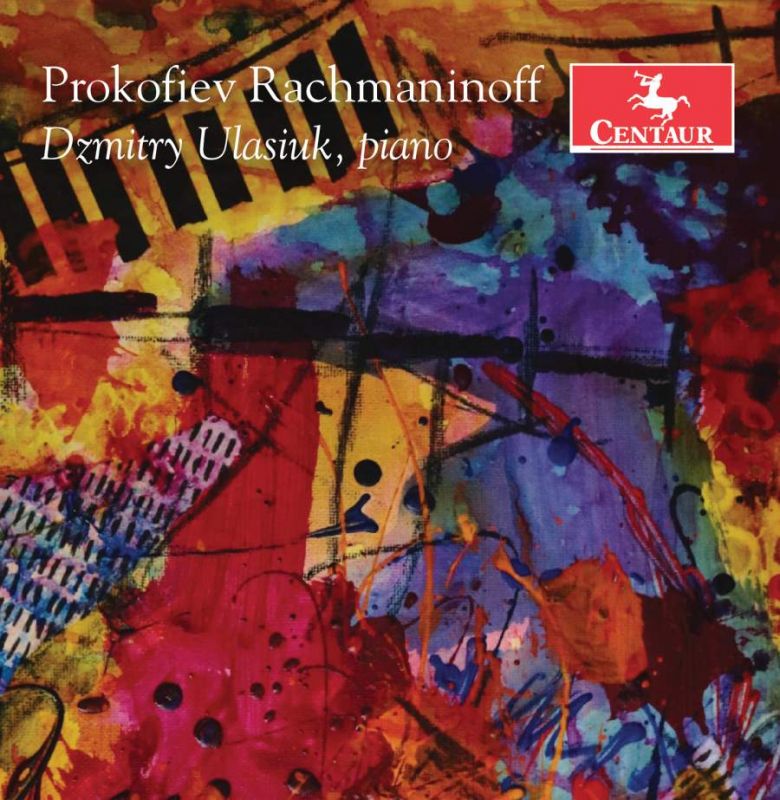PROKOFIEV Ten Pieces from Romeo and Juliet (Dzmitry Ulasiuk)
View record and artist detailsRecord and Artist Details
Composer or Director: Sergey Rachmaninov, Sergey Prokofiev
Genre:
Instrumental
Label: Centaur
Magazine Review Date: AW2019
Media Format: CD or Download
Media Runtime: 62
Mastering:
DDD
Catalogue Number: CRC3698

Tracks:
| Composition | Artist Credit |
|---|---|
| (10) Pieces from Romeo and Juliet |
Sergey Prokofiev, Composer
Dzmitry Ulasiuk, Piano Sergey Prokofiev, Composer |
| (9) Etudes-tableaux |
Sergey Rachmaninov, Composer
Dzmitry Ulasiuk, Piano Sergey Rachmaninov, Composer |
Author: Jed Distler
Ulasiuk doesn’t grasp the arpeggiated chords of ‘Masks’ with Andrei Gavrilov’s incisive spring, yet he wonderfully points up the characterful contrasts in ‘Montagues and Capulets’. ‘Mercutio’ is quite exciting, laced with effectively goosed-up accents and cross rhythms. Even the three single, slow repeated F naturals at the start of the ‘Dance of the Girls with Lilies’ generate tension and anticipation! And the lengthy finale holds interest by virtue of Ulasiuk’s variegated articulation, especially in his distinctions between short phrases and long sustained lines. In short, his pianistic astuteness and balletic instincts serve the music well.
For Rachmaninov’s Études-tableaux, Op 33, Ulasiuk wends his way from the ballet pit to the orchestra podium, conceptually speaking. He keeps No 1’s long cantabiles and marching bass lines in firm perspective, while treating the ostinato figure that persists throughout No 2 as an anchoring component rather than decorative tinsel. Although I prefer the muted shadings and faster overall pace in John Ogdon’s haunting reading of No 3 (Testament, 11/03), Ulasiuk’s slower tempo and more pronounced shaping of the bass lines completely convince. He gets slightly bogged down by the D minor and E flat minor pieces’ multi-level textures that the young Hélène Grimaud effortlessly navigates (Denon, 12/86), yet he works his way up to a powerful climax in the G minor. But the concluding C sharp minor Étude-tableau comes off relatively sectionalised when compared to the dramatic continuity of Richter’s various live 1983 performances or the splendid recordings by Lugansky (Challenge Classics, 1/95) and Hayroudinoff (Chandos, 2/07). All told, a promising debut for a talented pianist.
Discover the world's largest classical music catalogue with Presto Music.

Gramophone Digital Club
- Digital Edition
- Digital Archive
- Reviews Database
- Full website access
From £8.75 / month
Subscribe
Gramophone Full Club
- Print Edition
- Digital Edition
- Digital Archive
- Reviews Database
- Full website access
From £11.00 / month
Subscribe
If you are a library, university or other organisation that would be interested in an institutional subscription to Gramophone please click here for further information.




